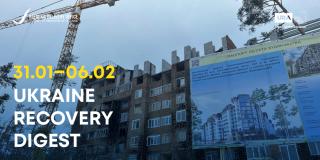Civil servants: what they should be like, to be able to do and how they should work.
Several surveys were held in 2016–2017 about what Ukrainians expected from civil servants (Headhunter, Civil Service: Changes and Realities. 2016, TNS. Civil Service Reform, National Reforms Council, Khvylia 2'17, 2017). The timing was great as the reform of public administration had just started.
In addition, the revised Law on Civil Service came into force in 2016, and the reform team began devising a new competitive procedure for civil servants. So, the findings of the study underpinned the logic of forming a new civil service to an extent.
So, what did the people demand?
Their expectations can be split into three categories.
One is related to knowledge: they most often referred to good education, professionalism, literacy and fluency in languages — both native and foreign ones.
The second one concerns with skills and competencies — ability to handle large amounts of information, strategic thinking, negotiation skills.
The third one covers personal qualities such as working for the benefit of the public, integrity, openness, customer orientation and willingness to address people's issues, accountability and impartiality.
The third category was the most numerous. The idea of strengthening the public sector with new blood was also expressed quite often in order to make it more modern and introduce new approaches.
In early July this year, the Reform Delivery Office and the Secretariat of the Cabinet of Ministers also completed their own research, "A Portrait of a New Civil Servant." We tried to analyze how civil servants recruited during the public administration reform (with new competitive procedures and higher requirements of knowledge and skills) meet the expectations of Ukrainians.
If intelligence is to be judged by education, the situation is more than optimistic: 84% of those selected to fill new civil service offices have a master's degree, 26% have a second degree, and 13% have higher degrees.
However, the situation with the language is rather ambiguous. While there are no problems with the mother tongue, which is a mandatory legal requirement verified by admission testing, skills in foreign languages are worse: only 28% are fluent in them (mostly English).
This can be attributed to the fact that foreign languages are not a mandatory requirement for most civil servants, unlike, for example, the Senior Body of Civil Service — the top management of Ukrainian civil servants, where fluency in a foreign language is a prerequisite for being taking office.
Professionalism is also tested at entry because the candidate should be aware of the situation in the field that he or she wants to work in, take a test of knowledge of applicable laws etc.
Our survey further showed that 64% of new civil servants had previous experience in the system of government, so they must be the experts who know the way through the maze of Ukrainian red tape. Combined with the "new blood" (the remaining 36% from the private and non-governmental sectors), this offers a great mix of innovation and institutional memory.
The government reform team processed the second category (strategic thinking, dealing with large amounts of information) at the selection stage by introducing a test of verbal, numerical, and abstract reasoning, situation-based problems that require processing large data sets within a short time and demonstrating the ability to create industry-specific development strategies. In addition, strategic planning directorates, where such competencies are the top-priority requirement, have been introduced within the reform at pilot ministries.
Expectations in category 3 are, in fact, a recurring theme of the entire reform of public administration — centered on the citizen, open state — good service, government bureaucrats and officials serving the public interest, digitalization of public services.
Key instruments that we have introduced within the reform include training for civil servants to work with stakeholders and social impact assessment. It is in fact a matter of estimating the impact of any innovations on all groups of people and every individual, as well as of working out political decisions together with all stakeholders such as businesses, the public, trade unions, experts, etc.
We believe that human centricity is bound to become a fundamental principle of civil service.
We have good news for the advocates of a younger government workforce: more than a half is aged 35 or less.
So, young blood leaks into the government? contributing relevant knowledge, skills, and qualities expected by the Ukrainians. They are greatly expected to become a locomotive of positive change under the new political leadership.
Are they many? No, 600 pioneers only — a drop in the sea of the entire civil service system.
Will there be more? It depends on whether the public administration reform continues and the competitive procedure is further improved as it still has room to grow. The country surely has experts who know exactly how to do things.
However, new civil servants today form the bureaucratic pillar that the new team in the government can rely on: they have high requirements to service, decent compensation, and an understanding of their KPIs.



